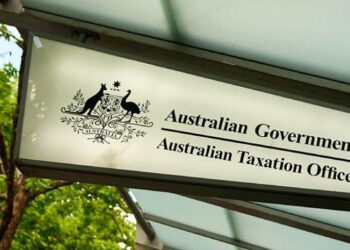Shelley Banton, head of technical for ASF Audits, says section 109 is “universal” to everything an SMSF does, especially when considering the complex and often confusing non-arm’s length income rules.
“The first rule [of s109] is, if the fund did it, the file should show it. It’s a bit of a bold statement, especially when we’re trying to reduce red tape in SMSFs, but when you think about issues such as NALI, Division 296 tax, market valuations, and arm’s length transactions, it’s critical to be on top of it all because we have to take a holistic approach to the SIS legislation,” Banton said.
“The reason is that the rules and the regulations don’t work in isolation. They work together very intricately and very cleverly and now, more than ever, you need to be smarter than the average bear, which means you enable them to be able to prove what happened and when.”
Banton said an example where this rule is vital is when trustees withdraw money from their fund on multiple occasions, and they get treated as loans to members.
“There’s no documentation. The loans are unsecured. There’s no interest paid and no repayment date that’s agreed upon so the contraventions here are section 62, the sole purpose test, section 65 financial assistance, section 84 in-house assets and last but not least, section 109, non-arm’s length dealing,” she said.
“Apart from ripping money out of the fund, there’s nothing to support the fact that those withdrawals were loaned to members. The point is that there’s no documentation. You can’t backdate documents because that’s fraud. You need to put something in place before it happens. If the super fund did it, the file should show it, which means as accountants, advisers and auditors, we should be working together.”
Banton added that while the documentation should reflect each professional’s area of expertise, they should all “be singing the same song”.
She continued that s109 clearly states from the outset that investments of a super fund have to be made and maintained on an arm’s length basis.
“There’s two parts to the rules – it has to be on an arm’s length basis at the start and at all times while the fund holds the investment,” she said.
“It means a fund can’t invest in an asset unless it and the other party are dealing with each other at arm’s length in respect of the transaction so both parties must be able to put their hands on their hearts and say, ‘this is the type of transaction that I would enter into, even if it was with a stranger’. Also, neither party benefits [from the transaction], and it has to be done on commercial terms.”
Banton said s109 continues that if a transaction isn’t at arm’s length, but doesn’t favour the other party, it meets the rules. However, if the fund gets more favourable terms the Tax Act applies and will trigger NALI provisions.
“Section 109 also looks at the requirement that once a fund has transacted on an arm’s length basis and acquired the asset, then it has to stay on arm’s length terms for as long as the fund holds the asset up until disposal,” she said.
“It states the trustee must deal with the other party in the same manner as if the other party were at arm’s length, which means that if you look at property leased to a related party, for example, there has to be a lease in place that’s on arm’s length terms. The fund has to receive the rent each month.”
Banton said by understanding how s109 applies to an SMSF trustees will know the expectations of how an SMSF has to deal with other parties and how it will breach the section if they don’t.
“One of the things about s109 is that it just doesn’t discriminate against related parties. It says other parties, meaning everybody and anybody which is related and unrelated parties who must deal with the fund on an arm’s length terms, because if they do that on non-arm’s length terms, it can result in the fund breaching s109 and the fund being subject to the NALI provisions,” she added.


